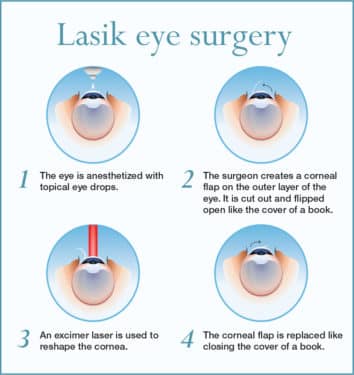Eager To Recognize Refractive Lens Exchange? Look Into Important Insights And Options That Can Considerably Impact Your Vision Experience
Eager To Recognize Refractive Lens Exchange? Look Into Important Insights And Options That Can Considerably Impact Your Vision Experience
Blog Article
Content Written By-Hunter Byers
If you're thinking about refractive lens exchange, you most likely have a great deal of questions. This procedure could alter exactly how you see the world, providing advantages like reduced dependence on glasses. However, it's necessary to comprehend the procedure, risks, and that certifies as a great prospect. Let's check out these critical aspects so you can make an informed choice regarding whether RLE is right for you.
What Is Refractive Lens Exchange and How Does It Function?
Refractive lens exchange (RLE) is an operation developed to change your eye's all-natural lens with an artificial one, fixing vision issues like nearsightedness, farsightedness, or presbyopia.
During the treatment, your specialist makes a tiny laceration in the eye, removes your all-natural lens, and inserts an intraocular lens (IOL) customized to your vision needs. This outpatient surgical treatment usually takes about 15 to 30 minutes per eye and is done under neighborhood anesthetic.
You'll likely notice renovations in your vision nearly promptly, though full healing may take a few weeks. RLE is specifically advantageous for those over 40 or with high prescriptions, supplying a lasting option compared to glasses or call lenses.
Your eye care expert can help establish if RLE is right for you.
What Are the Perks and Dangers of Refractive Lens Exchange?
Selecting refractive lens exchange can bring about considerable enhancements in your vision, however it is very important to consider both the benefits and threats before making a decision.
On the plus side, this procedure can improve your sight by dealing with issues like presbyopia, myopia, and hyperopia. Lots of clients delight in minimized dependence on glasses or contact lenses, which can substantially improve their quality of life.
Nevertheless, it's essential to take into consideration prospective threats. Problems can consist of infection, glare, or halos around lights.
There's also a chance of overcorrection or undercorrection, which may need additional procedures.
Who Is a Perfect Candidate for Refractive Lens Exchange?
If you're thinking about refractive lens exchange, it is necessary to recognize whether you fit the profile of an excellent prospect. Generally, you may be an excellent candidate if you're over 40, experience presbyopia, or have high levels of nearsightedness or farsightedness.
https://luke-terese.blogbright.net/insights-from-lasik-cosmetic-surgeons-about-their-psychological-journeys-can-offer-transformative-point-of-views-prior-to-your-surgical-procedure-what-facts-are-they-keeping-from-you 's likewise crucial that your vision is stable, suggesting your prescription hasn't altered substantially in the past year. If you have cataracts or other eye conditions, you might benefit from this treatment also.
Nonetheless, particular elements, like unrestrained diabetes or autoimmune conditions, could disqualify you. To determine your candidacy, seek advice from an eye treatment expert that can review your particular scenario and advise the very best strategy tailored to your needs.
Conclusion
To conclude, refractive lens exchange can be a transformative alternative for enhancing your vision, specifically if you more than 40 or have a high prescription. While the advantages are substantial, it's important to evaluate the dangers and consult with your eye treatment expert to identify if you're an ideal candidate. With the appropriate information and assistance, you can make an educated decision and possibly take pleasure in a life with minimized dependence on glasses.
